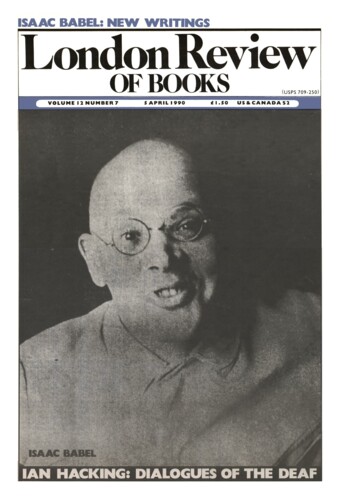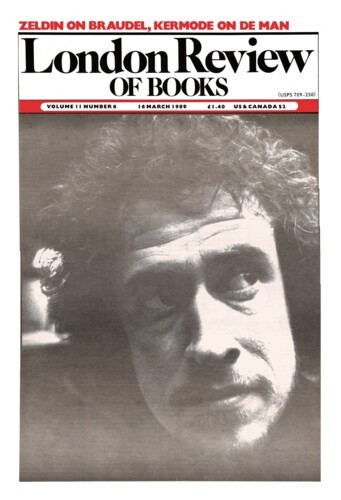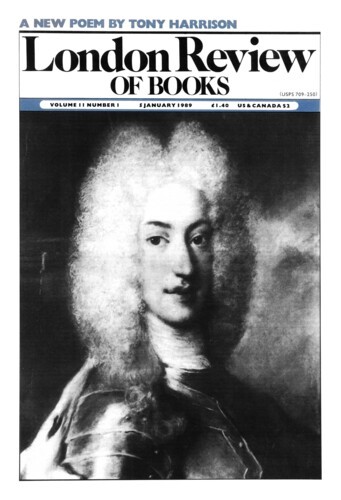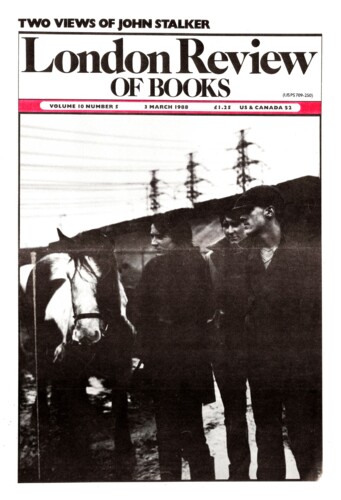Fielding in the dock
Claude Rawson, 5 April 1990
Fielding was born in 1707 into a family in straitened circumstances but of aristocratic connections. A family myth, based on forged papers, claimed descent from the Hapsburgs. The combination of financial embarrassment and gentlemanly caste is emblematic of the whole atmosphere of his life, and is variously reflected in his writings. He turned to writing fiction for a living (and to practising law for the same reason) after his career as a prominent and successful dramatist was ended by the Licensing Act of 1737, which his own anti-Government plays helped to precipitate, and which remained in force until 1968 (in later years it functioned more as an instrument of moral than of political censorship). He is the only one among the important early novelists whose origins were patrician, and the only one also whose style and cultural loyalties were closely tied to the tradition we sometimes call Augustan, of which the dominant representatives in Fielding’s lifetime were Swift and Pope. Early in his career he sometimes called himself Scriblerus Secundus, after their famous coterie the Scriblerus Club. One of his earliest poems, however, was an unfinished mock-Dunciad against them, discovered some twenty years ago by Isobel Grundy among the papers of his cousin Lady Mary Wortley Montagu. Fielding seems to have been playing on Lady Mary’s hostility to Pope and his friends, and may have hoped through her influence to secure the patronage of the Prime Minister Walpole. There was no love lost between Walpole and the Scriblerians either, and Fielding’s fluctuating attitudes to them are sometimes inverse indicators of where Fielding stood (or wanted to stand) with Walpole.




